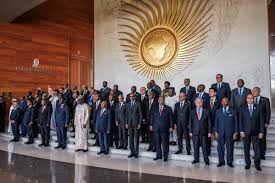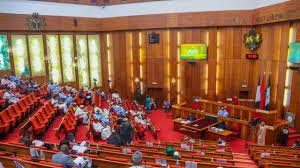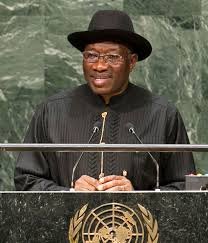“In 2012, together we authored and got to be published BLUF. If some of our friends were part of that or they found it credible to cite it and now they support “appropriate pricing” they owe us responsibility of doing a new analysis of equal depth to tell us what has changed” – Tunde Aremu_
The above is a direct quote from my friend, brother, colleague and comrade. Many of us who were part of the mobilisation towards and organisation of the January Uprising of 2012 – what became known as Occupy Nigeria, have in recent times found ourselves in a position where we are forced to recount our arguments on this same issue from more than eight years ago! It seems that in nearly nine years, the more things seemed to have changed, the more they have remained the same.
For instance another of the leadership of the January Uprising, and a teacher and mentor – Comrade Jibo (Prof Jibrin Ibrahim), has also had to write an opinion piece in the Premium Times of today, titled; Remembering When We Occupied Nigeria. Incidentally both Tunde Aremu and Jibo referenced BLUF, the platform we created in the FCT to engage with the development of the popular ferment.
Apart from the BLUF policy and political paper on the issue, the NLC also released a well thought out and well-articulated position paper. Additionally, the United Action For Democracy (UAD) also released a position paper. The UAD, along with JAF and BLUF were integral parts of the Labour Civil Society Coalition, that organised the January Uprising along with our labour allies in the NLC & TUC.
I was the convener of the UAD then, was in the leadership of BLUF, and of the Labour Civil Society Coalition. All of the positions of these allies were mutually reinforcing. What did we say then? What was our argument? What did we recommend? We argued then that we were in that catch 22 situation because we have been dependent on importation of refined petroleum products to meet our domestic needs, even though we are one of the largest producers and exporters of crude oil.
We were in such a foolish position because our refineries were moribund and not functioning. We argued that as long as we continued to depend on imported refined products, then unless government somehow covers the cost, the price of fuel, dependent as it would be on the price of crude, the cost of refining abroad, the cost of shipping refined products back to Nigeria, and eventually the landing cost of imported refined products on our shores; compounded by the value of the Naira against the dollar, the price of refined petroleum products would always be high and unaffordable, with a tendency to keep rising.
This is essentially what is being played out today. Let us also not forget that we are the only member of OPEC with non functional domestic refineries, with near zero domestic refining capacity, and that is more than 90% dependent on imported refined petroleum products to meet our domestic needs! Our refineries are still moribund, we are still dependent on imported refined products, and the value of the Naira continues to weaken against the dollar.
But this is nearly nine years since that uprising. Any serious ruling class cognisant of its role, and aware of its national interest would have tackled this challenge, and addressed it in the eight intervening years. But not our parasitic, congenitally inept, historically corrupt, and administratively incompetent ruling class! In the heat of the January Uprising, we offered a proposal – return to status quo ante, and over a period of 18 to 24 months, address the challenges with domestic refining capacity, and then let prices float. Our proposal was rejected, we were told it would take 24 to 36 months to build new refineries, and about nine months to revamp the existing old refineries.
We said, no wahala, get to work. In 3 years, from their own calculations the problem should be behind us. Alas, three more years of the Jonathan administration, and more than five years of the successor Buhari administration, nothing has changed. The existing refineries are still moribund, they have not been made to work. No new refineries have been built. And our domestic refining capacity is still zero!
What an unpatriotic, self-interested and self-indulging ruling class. The regime must own up to its failure, and it must be held accountable for the wasted years. This regime must find a way to ensure we acquire the necessary domestic refining capacity that can enable us to meet our domestic needs, and also sell to our neighbours in Africa. In record time, and without continuing this craze towards incessant price hikes. If we were refining at home, there would be no need to factor in all the dollarised costs for external refining, and external logistics and shipping.
Petrol would sell for less than N80 per liter at the pump, and it will be cheaper for our neighbours to buy from us than to buy from across the seas. What is more, the market in the smuggling of imported refined products will also collapse. This was the argument we made nearly nine years ago, and it remains sound to this day.
However, if there is one constant lesson that has been taught by our history, it is that only popular resistance can make the ruling class to become patriotic and do the right thing. This is why the time has come for us to once again wage a popular, Pan Nigeria Resistance struggle, take our destinies back into our own hands, and (re) Occupy Nigeria (once again).
We must reject these price hikes in fuel price and in electricity tariffs; we must demand a clear plan and pathway to achieving adequate domestic refining capacity for petroleum products to meet our needs, and also to export; as well as a new power and electricity regime that ensures universal access to affordable electricity, and that ensures accountability and citizens oversight in the energy and power sectors.























